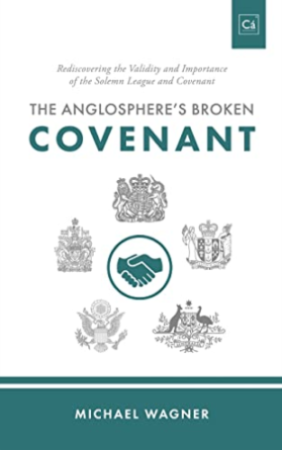Many moons ago, I wrote an article for the magazine Antithesis, in which I argued that the Solemn League and Covenant had been broken and set aside by a disobedient people, but the covenant had not thereby evaporated. I was therefore exceedingly pleased to see that someone had written a small book that made the same case in a much more effective way. This is a book that will really mess up your hair.
If you have been tracking with the Christian Nationalism discussion, this is an issue that is upstream from that. And what do I mean?
I will give you the basic thesis here, and leave you to get the book to pursue the arguments into all the possible nooks and crannies.
In 1643, the kingdoms of England, Scotland, and Ireland made a Solemn League and Covenant with Jehovah, promising to serve Him faithfully. In that covenant, they bound themselves to that commitment with an oath, and in addition they bound their posterity to it as well. After Cromwell’s death, in the Restoration, Charles II committed himself to the Solemn League and Covenant as one of the conditions for bringing him back to the throne. He of course broke his word, and the solemn covenant was subsequently repealed.
The argument of this book is that a mutual covenant cannot be repealed by just one of the parties, and so the covenant is still in force—broken, but still in force. The additional arguments that Wagner mounts are that members of the Commonwealth (Canada, New Zealand, Australia) are still bound by the covenant as well. Because of the unique history of the United States, and our War for Independence, the argument for us takes a little different route, but arrives at the same conclusion. We also are bound by it.
I think that all Christians would likely agree that covenants made centuries ago, say with the Navajo, should still be honored today. But we think that the covenant with God is just “words on paper.” This is because we believe in the Navajo, but when it comes to God, we are functional unbelievers.


